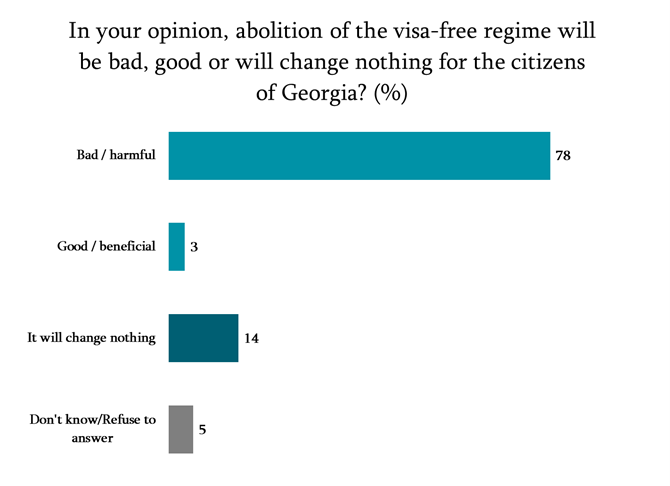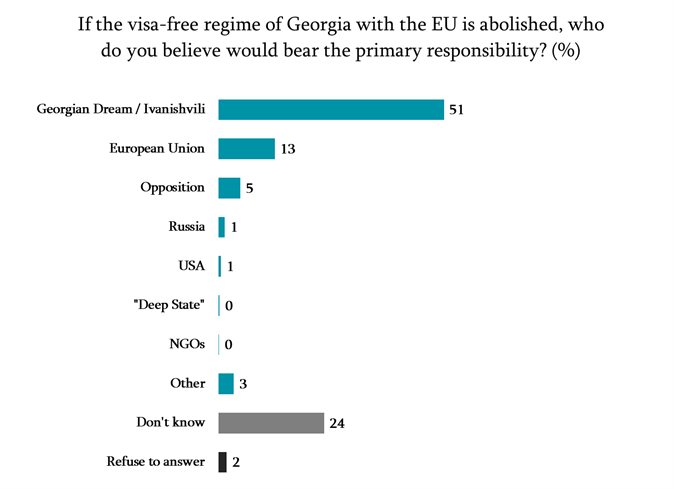The results of a telephone survey carried out by CRRC-Georgia in August 2025 clearly reveal that the Georgian public is still strongly pro-Western, with widespread support for EU membership. The public agrees that suspending visa-free travel with the EU would be harmful to citizens. At the same time, if visa liberalization is suspended, more than half of the population would hold the government responsible.
Support for EU Integration
Support for Georgia’s EU membership remains strong. Seventy-eight percent of respondents support joining the EU. Young people (ages 18-34) show greater support, at 86%. The degree of support in older age groups declines slightly, but large majority continue to support membership: 76% among those aged 35-54, and 71% among those 55 and above. There are no discernible gender differences, albeit support is stronger in the capital than in regions.

Practical Applications of Visa-Free Travel
As part of its integration path, Georgia gained visa-free travel with the EU on March 28, 2017. According to survey results, over the last eight years, 22% of the population has visited a country within the EU without a visa. This percentage rises to 33% among young people (18-34), 23% among middle-aged adults, and 12% among the elderly. Men (26%) go visa-free to the EU more frequently than women (18%). Residents of the capital and residents with higher education are more likely to have used visa-free travel than people living in rural areas or those with lower levels of education.

Perception of Possible Consequences
It is worth noting that a large majority of Georgians (78%) agree that suspending visa-free travel to the EU would be harmful to Georgian citizens. While young people, women, and residents of the capital are more inclined to believe that stopping visa-free travel would be undesirable and harmful, society as a whole is fairly united on this subject, with no significant disparities across demographic groups.

Responsibility
If the EU suspended visa-free travel for Georgians, slightly more than half of respondents (51%) would assign the responsibility to the ruling party, Georgian Dream, and its leader, Bidzina Ivanishvili. In such a circumstance, young individuals (18-34) are more likely to blame Georgian Dream/Ivanishvili than elderly citizens. Similarly, people of the capital are more likely to lay responsibility on the ruling party than those from other urban and rural areas. Education level does not appear to make a significant difference in this regard.

About the Survey
The telephone survey of the Georgian population, aimed at exploring public attitudes toward the EU and visa liberalization, was conducted by CRRC-Georgia at the request of the Civil Society Foundation and with the financial support of the European Union. The survey was conducted between August 8 and 12, 2025, using the Computer-Assisted Telephone Interviewing (CATI) method. A total of 1,333 respondents were interviewed from randomly generated telephone numbers. The results represent Georgia’s adult Georgian-speaking population. The average margin of error is 1.56%.








